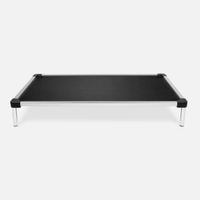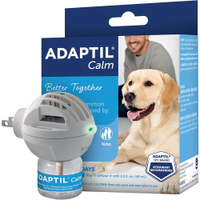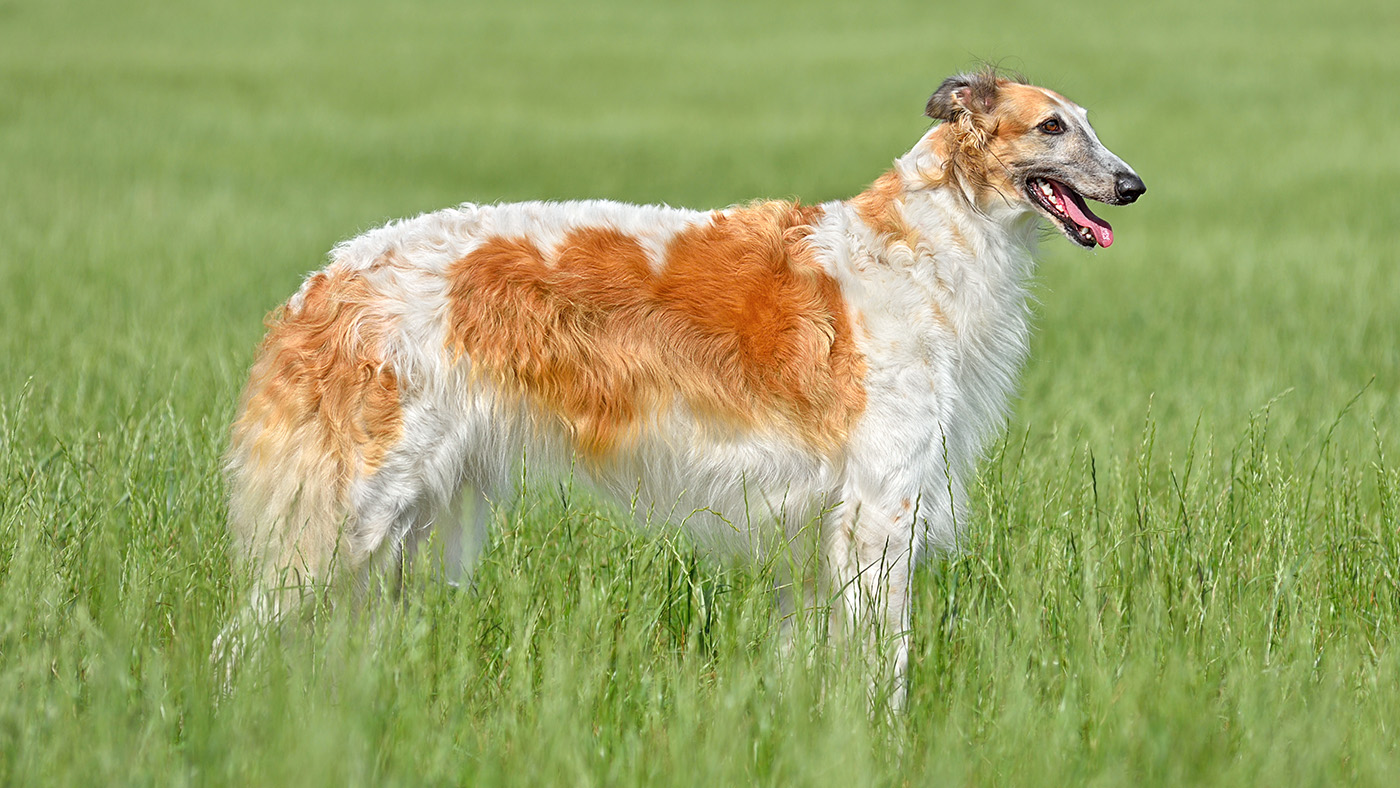Why do dogs chew their beds?
Why do dogs chew their beds? Vet reveals 6 common reasons and how you can put a stop to it.

Why do dogs chew their beds? It's a question you may be desperate to find the answer to if you're constantly having to replace your pup's beds because they keep destroying them.
Let's face it, the best dog beds don't come cheap, so it's understandable that you want to get to the bottom of why your fur friend is doing this and figure out how to prevent it.
Thankfully, we can help you in both those areas. Below, expert vet Dr. Hannah Godfrey reveals the six most common reasons dog's chew their beds and shares her top tips on how to put a stop to it. We’ve also put together a guide to the best dog beds for chewers to give you a head start.
Why do dogs chew their beds?

There are lots of reasons why a dog may chew their bed, but here's a few of the most common:
1. Stress
Stress and anxiety in dogs can cause them to chew their beds as a way to soothe the discomfort they're experiencing.
"It’s not uncommon for dogs to chew their beds because they’re feeling stressed," Dr. Godfrey confirms. "This could be due to fireworks, thunderstorms, separation anxiety, visitors, or other pets."
Chewing is an instinctive way for dogs to release tension, however by coming up with other ways to destress your dog during times of peak anxiety, you can help to reduce this behavior.
PetsRadar Newsletter
Get the best advice, tips and top tech for your beloved Pets
2. Boredom
Do dogs get bored? Absolutely! And not only that, but boredom can lead to all sorts of unwanted behaviors — like ripping their bed to shreds.
"Pets who are bored are much more likely to engage in destructive behavior, like chewing up their bed," says Dr. Godfrey. "Boredom could set in because they haven’t had enough exercise, human interaction, or mental stimulation."
3. Underlying health issues
There are lots of signs a dog is in pain or feeling unwell, although some of them can be more subtle than others.
"When dogs feel unwell or are in pain, they don’t act like themselves," says Dr. Godfrey. They’re often more restless and unsettled and this could cause them to chew."
If you notice your dog is chewing and this behavior is accompanied by other signs — such as a decrease in activity levels, restlessness, or incessant crying or shaking, have your dog checked over by a vet.
4. Nesting instinct
"Many dogs love to get cozy, it makes them feel safe, so nesting behavior is perfectly normal," explains Dr. Godfrey. "However, if they get too enthusiastic they could cause damage to their bed."
5. Teething
If you have a young fur friend in your family, puppy teething could be the reason behind their bed chewing.
"When a puppy’s adult teeth come through, at around six months of age, it causes some inflammation and discomfort," explains Dr. Godfrey. "That’s why it’s quite common for pups to get quite nippy with their teeth around this age, and the chewing isn’t restricted to toys and hands, they’re just as likely to chew their bed too."
6. Attention seeking
You'd be amazed the lengths your canine companion will go to to get your attention. According to Dr. Godfrey, bed chewing is definitely one behavior they'll engage in if they know it's going to get them your focus.
"If you give a big reaction when you walk in and find that your dog has chewed their bed, you’re giving your dog your full attention, which might be just what they’re craving. So, over time, your dog might learn that the best way to get your attention is to chew their bed."
Looking for a virtually indestructible dog bed? This one is well worth the investment. Featuring a 100% aluminium frame and heavy-duty sling, it arrives pre-assembled and can be used alone or in a standard-size dog crate.
How to stop a dog from chewing their bed

While it can be frustrating to invest in a dog bed only to have your canine companion destroy it within seconds, there are some things you can do to stop your dog chewing their bed.
1. Training
Investing in a professional trainer isn't an affordable option for many of us, but the good news is that training your dog on your own isn't as difficult as you might think.
Yes, it takes time, patience and consistency, but you can make great progress with behaviors like bed chewing if you're willing to put in the energy.
"Use positive reinforcement to train your dog not to chew their bed – reward them with treats, praise, and fusses when they’re sat nicely in their bed or when they’re chewing something appropriate, like a chew toy or treat," says Dr. Godfrey.
2. Provide other chewing outlets
"If you don’t want your dog to chew their bed, it’s best to provide them with plenty of things that they can chew," Dr. Godfrey advises. "For instance, a chew toy or dog chew will let them get their fix without damaging their bed."
We recommend the best long lasting dog chews for adult dogs and the best teething toys for puppies – both of which offer a great distraction.
3. Create a calming environment
If your dog's chewing is triggered by stress and anxiety, try to create a calming space for them.
"Dogs sometimes chew due to stress, so using calming products like anti-anxiety sprays, diffusers, or medications, as well as providing a safe space away from the source of the stress should help them to feel safe and settled," says Dr. Godfrey.
Adapt is the top vet-recommended solution to help calm and relax your dog at home. It helps your dog feel calm and comfortable by mimicking a mother dog’s natural nursing pheromones.
4. Ensure they're getting enough exercise
While all dogs need ample mental and physical stimulation to keep them happy and healthy, some breeds (or those that like to chew) require it more than others.
"Too much energy or a lack of mental stimulation can be disastrous with dogs who like to chew," Dr. Godfrey explains. "To combat this, make sure you take them out for regular walks, engage in playtime regularly, and offer puzzle toys and activities to keep them occupied when you’re not around."
When it comes to mental enrichment, we love the best dog puzzle toys for giving their brains a good workout. And if you're tired of the same old walk every day, here are some ways to build more fun into your dog's routine.
5. Invest in a tough dog bed
Unfortunately, while you can pretty much choose any old dog bed if you have a pup that doesn't chew, dogs that do like to chew need a tough bed that's going to go the distance.
"Not all dog beds are created equal, and if your dog’s a chewer you’re better off choosing one that’s durable," Dr. Godfrey advises. "Check for features like double seams and hidden zips, and choose fabrics like woven polyester or canvas."
Designed with aggressive chewers in mind, this heavy-duty cot has a solid metal frame that protects all the vulnerable spots from being shredded.
6. Speak with your vet
"If you’re getting nowhere when it comes to your dog’s chewing or destructive behavior, it’s always worth speaking to your vet," says Dr. Godfrey. "They’ll be able to check for underlying health problems that could be causing the behavior, and if needed they can refer you and your dog to a veterinary behaviorist."
You may also enjoy: How to stop your dog from chewing the carpet

Dr. Hannah Godfrey studied Veterinary Medicine at the Royal Veterinary College London. After graduating in 2011, Dr Godfrey went on to become a veterinary surgeon, conducting surgery consultations on a range of animals at a small independent practice in Cardiff, South Wales, UK. Dr Godfrey has a strong interest in soft tissue surgery. When she’s not helping animals back on their feet, Dr Godfrey writes a number of veterinary and animal-focused articles.

Kathryn is a freelance writer who has been a member of the PetsRadar family since it launched in 2020. Highly experienced in her field, she's driven by a desire to provide pet parents with accurate, timely, and informative content that enables them to provide their fur friends with everything they need to thrive. Kathryn works closely with vets and trainers to ensure all articles offer the most up-to-date information across a range of pet-related fields, from insights into health and behavior issues to tips on products and training. When she’s not busy crafting the perfect sentence for her features, buying guides and news pieces, she can be found hanging out with her family (which includes one super sassy cat), drinking copious amounts of Jasmine tea and reading all the books.


